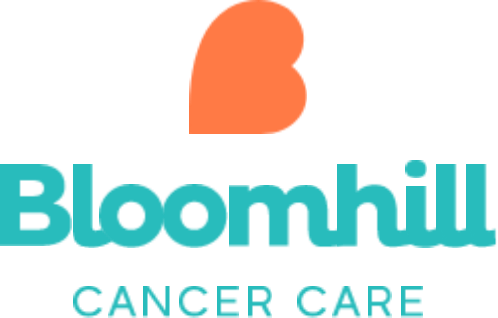 A cancer diagnosis is one of the most terrifying and devastating news a person might receive. There is often a sense of foreboding and loss of control over one’s life and body. To gain control over this situation, it is natural to be interested and willing to try anything in hopes of turning the tide in one’s favor.
A cancer diagnosis is one of the most terrifying and devastating news a person might receive. There is often a sense of foreboding and loss of control over one’s life and body. To gain control over this situation, it is natural to be interested and willing to try anything in hopes of turning the tide in one’s favor.
We live in a society where the vast majority have access to not only Conventional treatments that fight these Cancers, but also complementary and alternative therapies as well. With new ones coming into the market every day, promising positive outcomes regarding a cancer diagnosis and/or the associated side effects. Sadly, there are many “recommended” therapies that are not only lacking any real and current evidence-based studies, but are also scams with little to no effectiveness, and most importantly, can cause more harm than good.
This article provides a broad outlook on the different types of therapies available, and which ones are approved for safe use in conjunction with Conventional Treatments (Chemotherapies, Immunotherapies, Hormone therapies and Radiation) and are also proven to be effective.
To this date, there is currently no evidence backed alternative/complementary cancer treatments that play a direct role in curing cancer, but there are many that help alleviate the signs and symptoms caused by cancer and cancer treatments, such as anxiety, fatigue, nausea and vomiting, pain, difficulty sleeping, and stress. It is important to note that some of these Therapies are safe to use whilst also receiving chemotherapy or immunotherapy, whilst others are not.
Complementary approaches can be classified into different categories, including Nutritional, psychological and physical. Please be advised that anyone diagnosed with cancer should consult their health care providers before taking any other dietary supplement.
Nutritional:
-

Herbal Supplements: Studies and scientific evidence on whether herbal supplements or substances derived from them might be of value in cancer treatment are in their early stages, is limited. Herbal supplements may have side effects, and some may interact in harmful ways with drugs, including those used in cancer treatment.
- Vitamin and Minerals: The effects of taking vitamin and mineral dietary supplements during cancer treatment are uncertain. These supplements might interfere with the effectiveness of chemotherapy or other cancer therapies. If you are being treated for cancer, and want to take dietary supplements, you should discuss their use with your health care providers.
- Antioxidant Dietary Supplements: Antioxidant supplements, such as vitamins A, C, and E, selenium, and beta-carotene, have been promoted for their potential to prevent cancer and improve cancer treatment outcomes. However, the use of antioxidant supplements in cancer patients is controversial. One of the concerns with antioxidant supplements in cancer patients is their potential to interfere with radiation therapy and chemotherapy. Another concern with antioxidant supplements in cancer patients is their potential to interact with other medications. It is important for cancer patients to discuss their use of dietary supplements with their healthcare provider.
Psychological:
- Cognitive behavioral therapy: Cognitive Behavioral Therapy (CBT) has been found to be an effective treatment for cancer patients who experience anxiety, depression, and other psychological symptoms. By helping patients identify and challenge negative thoughts and beliefs, CBT can improve their mood, reduce stress levels, and enhance their overall quality of life. Additionally, CBT can help patients cope with the physical symptoms of cancer treatment by teaching them relaxation techniques and other coping skills. CBT can provide significant benefits for patients who are struggling with the emotional impact of this disease.
- Hypnosis: Hypnosis has been found to be an effective complementary therapy for cancer patients. It can help alleviate pain, anxiety, and depression associated with cancer treatments. Hypnosis can also improve sleep quality and boost the immune system. It may also help prevent anticipatory nausea and vomiting that can occur if chemotherapy has made you sick in the past. Studies have shown that hypnosis can reduce the need for pain medication and improve overall quality of life for cancer patients. It is a safe and non-invasive therapy that can be used in conjunction with traditional medical treatments to enhance patient outcomes. When performed by a certified therapist, hypnosis is safe. But tell your therapist if you have a history of mental illness.
- Meditation/Mindfulness: can help reduce stress, anxiety, and depression, as well as improve overall quality of life. Studies have found that meditation may even help boost the immune system and reduce inflammation in the body. Incorporating these practices into cancer treatment plans can provide patients with a valuable tool for coping with the physical and emotional challenges of their diagnosis. Meditation can be performed with an instructor, in a group setting, or by oneself.
- Music therapy: Music therapy has been found to be a valuable tool in the treatment of cancer patients. It can help reduce anxiety, depression, and pain levels, as well as improve overall quality of life. Music therapists work with patients to create personalized playlists and engage in activities such as singing or playing instruments. Studies have shown that music therapy can also improve immune function and decrease side effects of chemotherapy. Overall, incorporating music therapy into cancer treatment plans can provide significant benefits for patients both physically and emotionally.
- Relaxation techniques: Relaxation techniques are a safe practice, achieved through focusing your attention, calming your mind and relaxing your body. Relaxation techniques in cancer patients may improve concerns regarding anxiety, fatigue and sleep. Anyone starting out may require the help of an instructor to lead you through these exercises or require listening to a guided relaxation recording, however, positive outcomes are still achievable when completed on your own.
Physical:

- Qigong: Qigong is a gentle and effective way to help cancer patients cope with the physical and emotional challenges of their illness. It can improve circulation, reduce stress, and boost the immune system. Qigong exercises are easy to learn and can be done anywhere, making it accessible for patients who may not have access to traditional exercise programs. Additionally, practicing qigong in a group setting can provide social support and a sense of community for patients going through similar experiences. Overall, qigong offers cancer patients a holistic approach to healing that focuses on both the body and mind.
- Yoga: Yoga has been found to be a beneficial practice for cancer patients. It has been shown to provide some stress relief, improve sleep and reduce fatigue. However, not all yoga classes are suitable for those with Cancer. Before beginning a yoga class, ensure that you have spoken with the instructor prior about any health concerns, good instructor can give you alternative poses that are safe for you.
- Massage: Studies have found that massage can be helpful in relieving pain in people with cancer. It may also help relieve anxiety, fatigue and stress. Massage can be safe if you work with a knowledgeable massage therapist. It is important to note that not all massage therapists are trained in Oncology massage and if unaware or inexperience in your current condition, can cause a lot of harm. Many cancer centers, including Bloomhill cancer care, have cancer trained massage therapists.
- Acupuncture: Acupuncture is a form of Traditional Chinese medicine that has been around for thousands of years. Even though the workings of Acupuncture is not fully understood by the scientific community, it is a practice that has had an immense amount of research and studies on, with a lot of evidence proving that it is a relatively safe and effective and very effective in treating conditions such as pain, nausea, menopausal symptoms, sleep, fatigue, stress and Anxiety.
- Acupressure/reflexology: Reflexology has been found to be an effective complementary therapy for cancer patients. It can help alleviate symptoms such as pain, nausea, and anxiety, while also improving overall well-being. Reflexologists work on specific points on the feet and hands that correspond to different organs and systems in the body. This gentle pressure can stimulate the body’s natural healing processes and promote relaxation. While reflexology should not be used as a substitute for conventional cancer treatments, it can provide much-needed relief for patients during a difficult time.
- Exercise: Exercise has been shown to have numerous benefits for cancer patients. It can help reduce fatigue, improve mood, and increase overall quality of life. Additionally, regular exercise may even help reduce the risk of cancer recurrence. However, it is important for cancer patients to consult with their healthcare team before starting an exercise program and to start slowly with low-impact activities such as walking or yoga. With proper guidance and support, exercise can be a valuable tool in the fight against cancer.
- Aromatherapy: Aromatherapy is the practice of using fragrant oils and other aromatic materials to provide a calming sensation, potentially improving psychological and/or physical well-being. Oils can be applied to your skin, added to bath water or be heated to release their scents into the air. Aromatherapy may be helpful in relieving nausea, pain and stress. This form of therapy is deemed relatively safe, however may cause allergic reactions to some when applied on skin. If you have sensitive skin, you should avoid applying large amounts at once.
I also want to reiterate that if you decide to pursue a form of Complementary and alternative medicine, ensuring that your Oncologist, doctors and treating team are aware of this.
Important Disclaim er
er
It is also important to note, that Natural does not mean safe. There are many Complementary and Alternative forms of medicine available and accessible in the community, such as herbal/dietary supplements, vitamins and fraudulent cancer treatments. Many of these supplements or treatments have not been approved for use in Australia by the TGA.
If taken, these supplements may be very harmful, whether this is due to the physical side effects, drugs interactions with the current medication and/or cancer treatment you are on.
If you’re considering using any anticancer product that you’ve seen in an advertisement, talk with your health care provider first.
Please contact our Nurses on 07 5445 5794 or [email protected] if you have any questions.
All information provided by Bloomhill is based on research and best practice guidelines. Our model of care utilizes the Clinical Oncology Society of Australia (COSA) domains of wellness along with available clinical evidence. Always consult your care team regarding matters that affect your health. This is a guide intended for information only.




